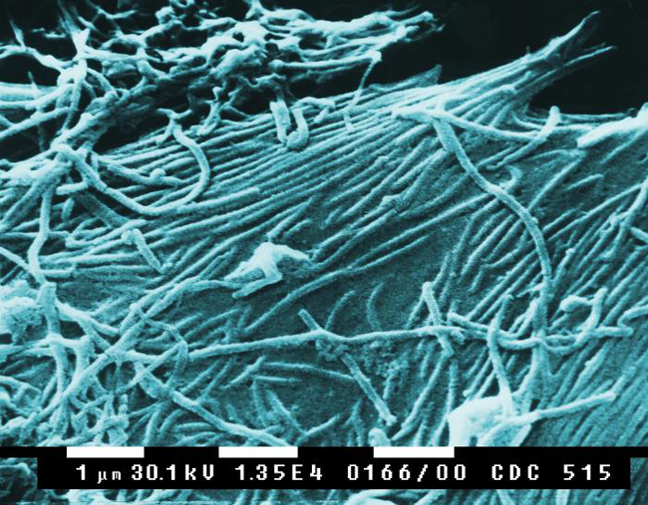
The Ebola virus. Image credit.
My colleague Jay Stanley has a very thoughtful piece up at the ACLU's Free Future blog, talking about the Ebola crisis and civil liberties. He observes that while in extremely rare cases people must be forcibly contained during epidemics, the vast majority of sick people want to be treated and do not resist public health efforts. Crucially, he points to a 2008 study commissioned by the ACLU that found
pandemics must be treated foremost as public health problems, not as law enforcement or national security matters. Victims of disease must be treated as human beings who need help, not enemies. Long experience has taught the public health community that treating people like enemies is counterproductive, because it drives them underground, encourages them to scatter, and makes them avoid seeking diagnosis and treatment. Such responses to disease can and have made things worse. Our 2008 paper cited several historical examples of such responses, and similarly in the current crisis the public health expert community strongly (and correctly) warned that the military quarantines and lockdowns attempted in Sierra Leone would be ineffective and counterproductive.
People want good medical care and will seek help if treated well. As experts realize, the situations in which force is required against the sick are actually quite rare — but they seem to occupy an outsized place in the imagination, especially of those brimming with bluster and panic.
Unfortunately, there's a lot of panic today. And despite the national outcry against the militarization of law enforcement, President Obama has reportedly ordered the creation of "SWAT teams" of "Ebola experts" nationwide. SWAT stands for "Special Weapons and Tactics."
It's not clear how these SWAT teams will change anything, or if President Obama actually knows what "SWAT" means. But the fact that the President of the United States is using military deployments overseas and policing rhetoric at home in his administration's response to a growing, global crisis doesn't bode well, for either civil liberties or public health.
